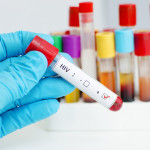I am not a criminal. I am not a sex offender. I’m a survivor!
I am among people who have been victims of HIV criminalization, either prosecuted or threatened with prosecution for non-disclosure of our HIV status before intimate contact with another person. Several of us are either presently awaiting trial or sentencing, in the process of appealing our convictions or waiting to learn whether or not charges filed will be carried through to prosecution.
Some of us were convicted and did not have to serve time, others of us have served years in prison or jail, are subject to sex offender registration and other restrictions. Some of us are gay, a number are not. Some of us have become spokespeople or advocates and talked to the media or policy leaders; others of us have not wanted to or have not been able or ready to do that.
Each situation is different, of course, but one thing we all share is the profoundly stigmatizing effect of HIV criminalization and the harm it has done to our families, our futures and us.
As an HIV-positive black gay man who was prosecuted under Louisiana’s HIV criminalization statute, I served six months in prison in that state and am now a convicted felon and registered sex offender, which was a requirement of my conviction -- so I couldn’t return to my old job. I needed a whole new life plan.
Prior to my arrest and conviction, I had a promising career working in the Louisiana state appellate court system. A criminal conviction was certainly not what I expected in my future when I tested positive for HIV ten years ago while enlisting in the U.S. military upon graduating from college.
A few days after my release, I found veteran AIDS activist and author Sean Strub’s POZ blog about HIV criminalization and contacted him, offering to volunteer in support of advocacy to help change these statutes.
I testify that it was out of pure misery that activism became my ministry to do anti-criminalization advocacy work, through the SERO Project, a network of people living with HIV and allies fighting for freedom from HIV stigma and injustice.
Over the last several years, the goal has been to put people who have faced or are presently facing HIV criminalization in touch with each other, to provide support, share resources and find comfort in the knowledge that, as singular and lonely as our experience has been, there are others who have at least some understanding of it from a similarly personal perspective.
We are, through the SERO Project, always working hard, to create a shared advocacy agenda that will give criminalization “survivors,” SERO Survivors, the chance to speak with the strength of a unified voice that: We are not criminals. We are not sex offenders. We are survivors!
Advertisement
Advertisement
Advertisement







17 Comments
17 Comments